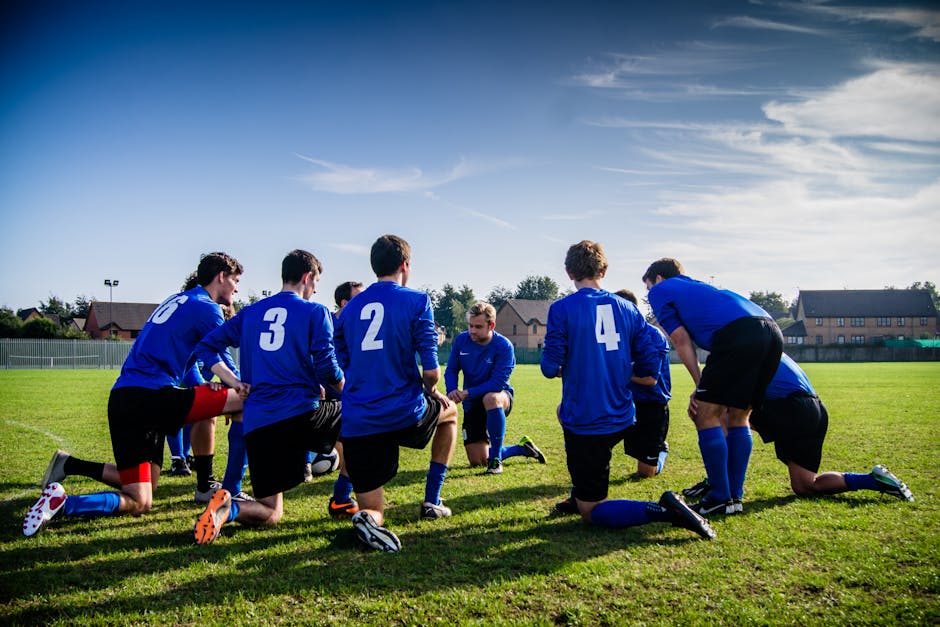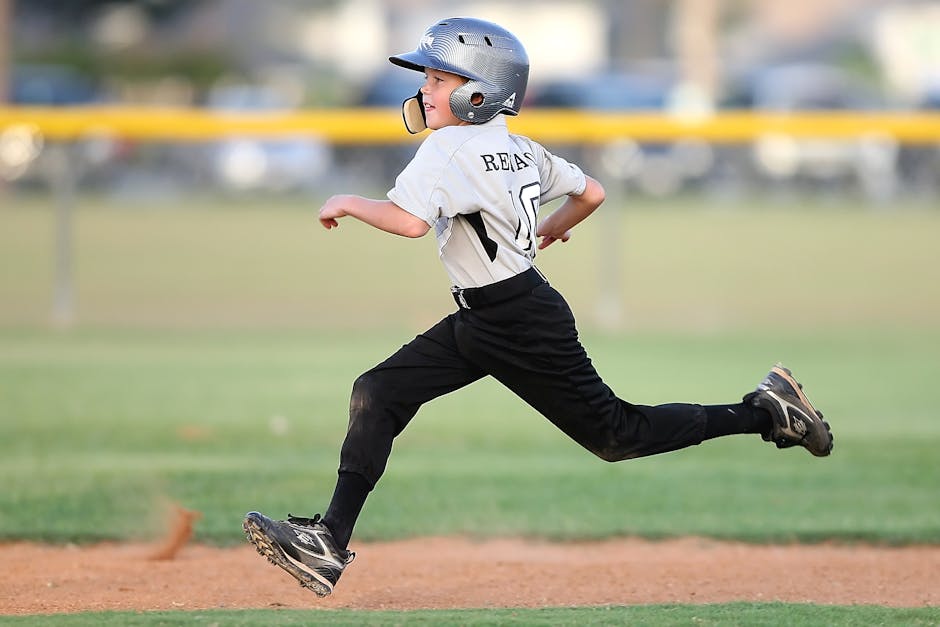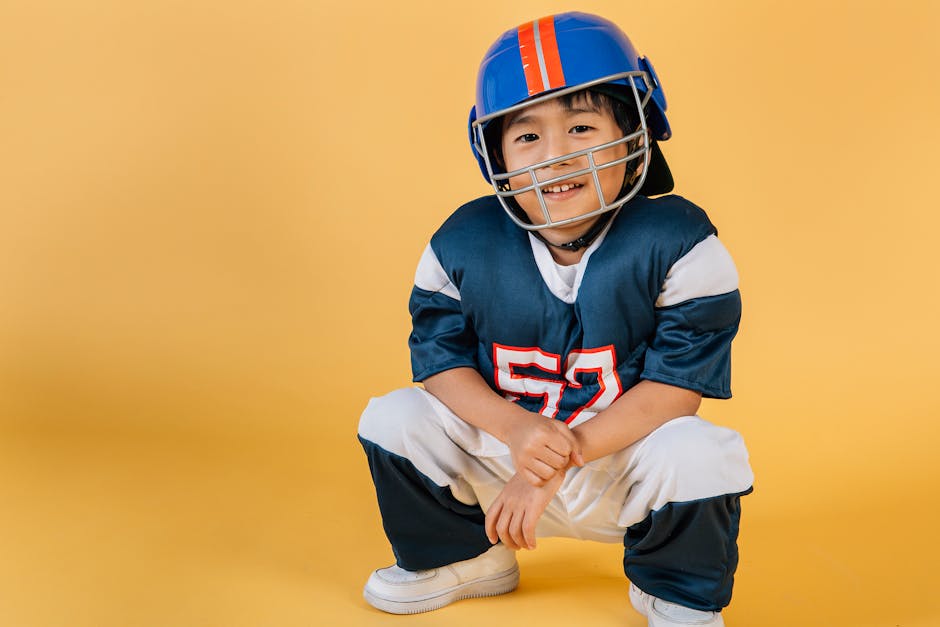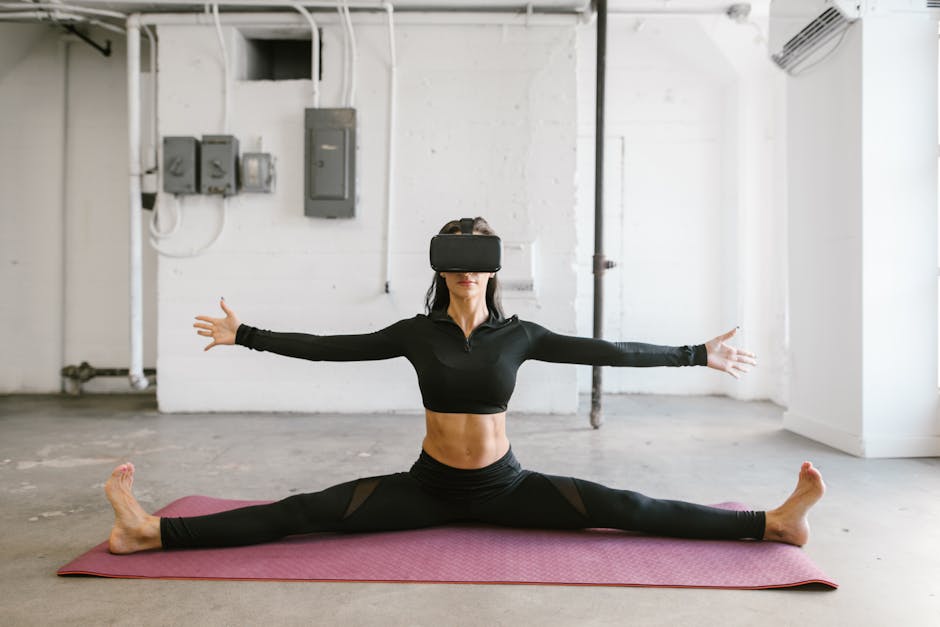The Neuro-Athlete: Mastering Mental Conditioning for Peak Performance
From the moment an athlete steps onto the field, a complex interplay of physical prowess and mental acuity determines their success. In the high-stakes world of sports, the mere possession of talent is often not enough; the mental game has become a focus area for elite athletes, coaches, and sports scientists alike. Welcome to the transformative realm of The Neuro-Athlete, where mental conditioning and cognitive training play pivotal roles in athletic performance. In this article, we’ll delve into the profound impact of mental conditioning on athletes and explore how cognitive training techniques can unlock untapped potential.
The Evolution of Athletic Performance

Historically, athletic performance was regarded as strictly physical. Early approaches to training focused on building muscle mass, enhancing cardiovascular endurance, and honing specific skills. However, as our understanding of sports has evolved, so too has the recognition that the mind is just as critical as the body. The successful athletes of today are not just physically fit; they are also mentally resilient.
Sports psychologists have underscored the importance of mental conditioning in enhancing performance. Athletes already face enormous pressures from competition, and any advantage in mental fortitude can significantly impact outcomes. Mental conditioning typically encompasses various psychological techniques aimed at enhancing focus, improving self-confidence, and managing anxiety—key components that can ultimately make or break an athlete's performance.
Understanding Cognitive Training

Cognitive training refers to mental exercises designed to improve cognitive functions such as attention, memory, and decision-making. Unlike physical workouts that enhance muscle strength or stamina, cognitive training hones the brain's ability to process information and react swiftly under pressure. For athletes, cognitive training can be the difference between winning and losing when the clock is ticking down in a crucial match.
Research indicates that mental exercises can even reshape the brain's neural pathways, enhancing focus and performance over time. Techniques like visualization, mindfulness, and even neurofeedback can help athletes achieve an altered state of awareness conducive to peak performance.
For those curious about the science of cognitive coaching, the intersection of neuroscience and sports is shedding light on new strategies to optimize mental conditioning techniques, paving the way for a new generation of athletic achievers who master both body and mind.
Mental Conditioning Techniques for Athletes

Visualization: Painting the Success Picture

One of the most powerful mental conditioning techniques is visualization. Athletes visualize themselves performing at their best, from executing a flawless routine to clinching the victory. The brain cannot distinguish between an experience that is vividly imagined and one that is real, making visualization a valuable tool for training.
For instance, legendary athletes like Michael Phelps have long endorsed visualization as key to their success. Phelps famously visualizes every stroke of his races before they happen. This technique has been backed up by studies indicating that mental imagery can enhance muscle memory and performance.
Mindfulness and Relaxation Techniques

Mindfulness exercises teach athletes to center themselves, focusing their attention on the present moment. By developing mindfulness skills, athletes can reduce pre-performance anxieties and ramp up their focus in high-pressure situations. Similarly, relaxation techniques such as progressive muscle relaxation can help athletes release tension and enhance their ability to concentrate during competition.
Neurofeedback: Training the Brain

Neurofeedback is an innovative approach that allows athletes to visualize their brain activity in real time, helping them gain insights into their mental states. This technique employs sensors placed on the scalp to monitor brainwaves and provide feedback on mental activities. As athletes learn to self-regulate their brain activity, they can often improve their focus, reducing distractions and enhancing performance. Athletes in various sports are increasingly adopting neurofeedback as part of their overall training regimen.
Cognitive Behavioral Techniques

Cognitive Behavioral Therapy (CBT) techniques can be instrumental in helping athletes manage their thoughts and emotions during competitions. By identifying and reframing negative thoughts—like fear of failure—athletes can cultivate a more positive mindset that empowers them in challenging situations. Coaches, too, implement CBT principles to instill resilience in their players and drive them toward success.
Employing Sports Psychologists

Professional athletes increasingly collaborate with sports psychologists to develop tailored plans for mental conditioning. These experts work with athletes to address personal challenges, foster routines, and create individual mental strategies that align with each athlete’s specific needs and goals. Over time, this relationship strengthens the athlete's mental infrastructure, making their training more holistically aligned.
The Role of Technology in Cognitive Training

As technology continues to transform the sports landscape, it presents new avenues for enhancing mental conditioning. Wearable tech and apps designed for cognitive training allow athletes to monitor and improve their mental performance on the go.
For example, advanced wearable devices have emerged to track not only physical metrics but also cognitive loads, allowing athletes to fine-tune their training schedules based on their mental fatigue and stress levels. This plays a crucial role in avoiding burnout and allows competitors to optimize their mental state on game day.
In parallel, the rise of virtual reality (VR) technology has revolutionized how athletes train. VR simulations can create game-day scenarios, allowing athletes to immerse themselves in high-pressure situations while remaining in a safe environment. This kind of simulated exposure plays a vital role in cognitive desensitization, preparing athletes for real-world challenges.
Practical Applications in Various Sports

Different sports can leverage mental conditioning based on their unique demands.
Team Sports

In team sports like football and basketball, where split-second decisions can shift the tide of a game, fostering teamwork through cognitive conditioning is essential. Coaches often facilitate exercises promoting trust and communication, which can lead to improved on-field chemistry and performance under pressure.
Individual Sports

In contrast, sports like tennis or gymnastics often require a high degree of individual mental focus and robustness. Athletes in these fields often lean heavily on techniques like visualization and mindfulness to bolster their performance. Make no mistake; the pressure on an athlete in these sports is immense, and successfully managing it through cognitive training is critical for achieving one's best.
Youth Sports

Mental conditioning is also becoming increasingly pronounced in youth sports. As children begin to compete, teaching them the values of mental resilience through fun activities helps athletes learn how to overcome challenges early on. The emphasis is less on winning at all costs and more on developing a love for the game and focus on their growth.
Exploring Neuro-Diversity and Athlete Potential

The discussion surrounding mental conditioning extends into the realm of neurodiversity. Recognizing that different athletes think and respond to challenges uniquely is critical for coaches and teams aiming to curate environments that foster performance. Some neurodiverse athletes might excel with tailored cognitive strategies that align with their processing styles.
For clubs and organizations committed to inclusivity, embracing strategies to support neurodiverse athletes can not only enhance individual performance but also promote an inclusive culture that thrives on diversity of thought.
Conversations around neurodiversity and its role in shaping team dynamics are ongoing, emphasizing the importance of understanding different styles of thinking and responding within a team setting.
Evaluating Outcomes: Mental Conditioning's Impact on Performance

How do we measure the success of mental conditioning techniques? Performance analytics is evolving to include mental metrics, integrating cognitive assessments with tradition-based performance statistics. Analytics can provide insights into how mental conditioning impacts decision-making skills on the field.
Coaches and sports organizations can evaluate training effectiveness and athlete progress by compiling this data. Utilizing both quantitative performance measures and qualitative feedback from athletes enhances a program’s overall effectiveness, paving the way for tailored strategies moving forward.
Next Steps: Embracing the Neuro-Athlete Philosophy

As we close this exploration into the world of the neuro-athlete, it is paramount to envision how mental conditioning can shape the future of sports. Athletes must embrace a comprehensive approach that combines physical training with robust mental conditioning tailored to individual and sport-specific needs.
For aspiring athletes, understanding the power of their mind offers immense opportunities. It may be worthwhile to engage in mental conditioning workshops, read literature on cognitive techniques, and consult with sports psychologists.
For coaches and trainers, incorporating mental conditioning techniques into regular training can help foster resilience among athletes, ultimately improving team cohesion and performance.
Resources for Further Exploration
To further your understanding of mental conditioning in sports, consider exploring resources such as:
- Sports Psychology Books: Look into classic and contemporary literature on sports psychology to understand mental strategies.
- Online Courses: Numerous universities offer online courses on sports psychology and mental conditioning techniques.
- Athletes Interviews: Following the journeys of elite athletes through interviews can provide insights into their mental conditioning routines.
In wrapping up, the evolution of the neuro-athlete signifies progress toward enhancing athletic performance by equipping athletes with the mental tools required to excel. The integration of mental conditioning into sports is not merely supplemental—it is fundamental to achieving success in the competitive landscape of athletics today.



